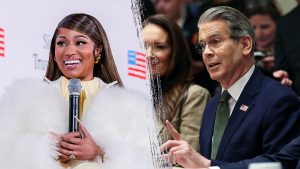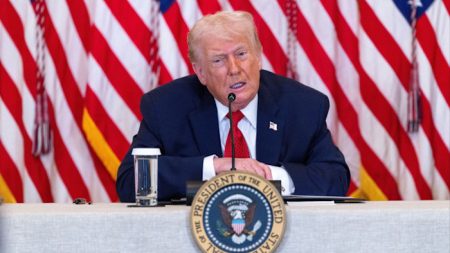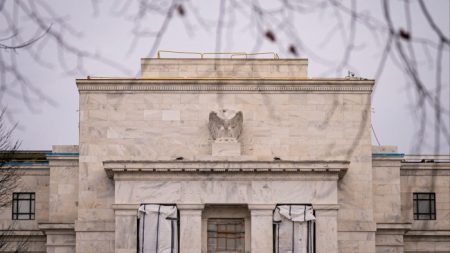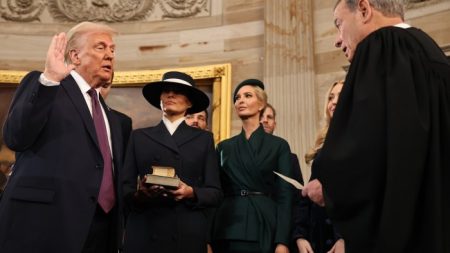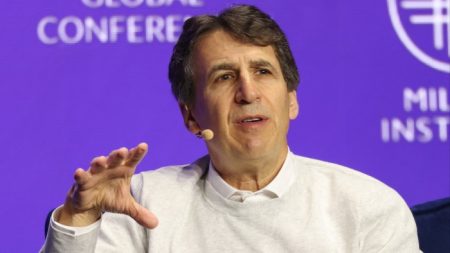Unlock the White House Watch newsletter for free
Your guide to what Trump’s second term means for Washington, business and the world
US secretary of state Marco Rubio has said the Trump administration would “aggressively” revoke the visas of Chinese students, in its latest effort to crack down on foreigners hoping to study in the US.
The move came a day after Rubio ordered US embassies across the world to stop scheduling interviews for new student visas, as the administration tightens the screening of applicants’ social media activities.
Rubio said in a statement that the state department would work with the Department of Homeland Security to “aggressively revoke visas for Chinese students, including those with connections to the Chinese Communist party or studying in critical fields”.
He said the US would also revise criteria to enhance scrutiny of all future visa applications from China and Hong Kong.
For nearly a decade, the FBI and other security officials have raised increasing concerns about the potential for Chinese students — particularly those in science, technology, engineering and mathematics fields — to help Chinese intelligence services conduct espionage in the US.
During the first Trump administration, the justice department created the “China Initiative”, a project to increase the focus on Chinese espionage in the US. The programme was shut down because of criticism that it amounted to racial profiling, but the scrutiny of Chinese students has continued.
In the 2023-24 school year, nearly 280,000 international students were from China, making up more than a quarter of all foreign students in the US, according to the Institute of International Education. It was the second leading country of origin after India.
China’s ministry of foreign affairs said on Thursday that Beijing had “lodged representations” with the US over the revoking of Chinese students’ visas, which was being conducted “under the pretext of ideology and national security”.
“This political and discriminatory move by the US exposes the hypocrisy behind its long-touted claims of freedom and openness,” a ministry spokesperson said. “It will only further damage the United States’ international image and national credibility.”
The new measures are part of a wide-ranging crackdown on international students that has sent a chill through American campuses and caused anguish for thousands already studying in the US who fear they will not be able to renew their visas.
The moves to restrict student visas are part of US President Donald Trump’s broader assault on the country’s elite universities, which he accuses of failing to tackle antisemitism during large-scale pro-Palestinian protests that followed the start of Israel’s war in Gaza. The president’s critics have accused him of attacking free speech and academic freedom.
Rubio also said on Wednesday that the Trump administration would also place new visa restrictions on foreign officials who he said had acted against US citizens over their posts on social media.
“Foreigners who work to undermine the rights of Americans should not enjoy the privilege of travelling to our country,” Rubio said in a statement posted to X.
“Whether in Latin America, Europe, or elsewhere, the days of passive treatment for those who work to undermine the rights of Americans are over.”
It was not immediately clear which officials would be affected by the visa restrictions or how the policy changes would be implemented.
But Rubio said in a separate statement that in “some instances, foreign officials have taken flagrant censorship actions against US tech companies and US citizens and residents when they have no authority to do so”.
He added it was “unacceptable” for foreign officials to threaten to arrest US citizens or residents for their social media posts and for foreign officials to “demand that American tech platforms adopt global content moderation policies or engage in censorship activity that reaches beyond their authority and into the United States”.
Trump, vice-president JD Vance and Rubio have all criticised overseas leaders for what the administration sees as infringements of free speech, including online.
Republican lawmakers, including Jim Jordan, chair of the House judiciary committee, have also attacked foreign lawmakers for their regulation of social media platforms and online content, including the EU’s Digital Services Act and the UK’s Online Safety Act.
Additional reporting by Joe Leahy in Beijing
Read the full article here


